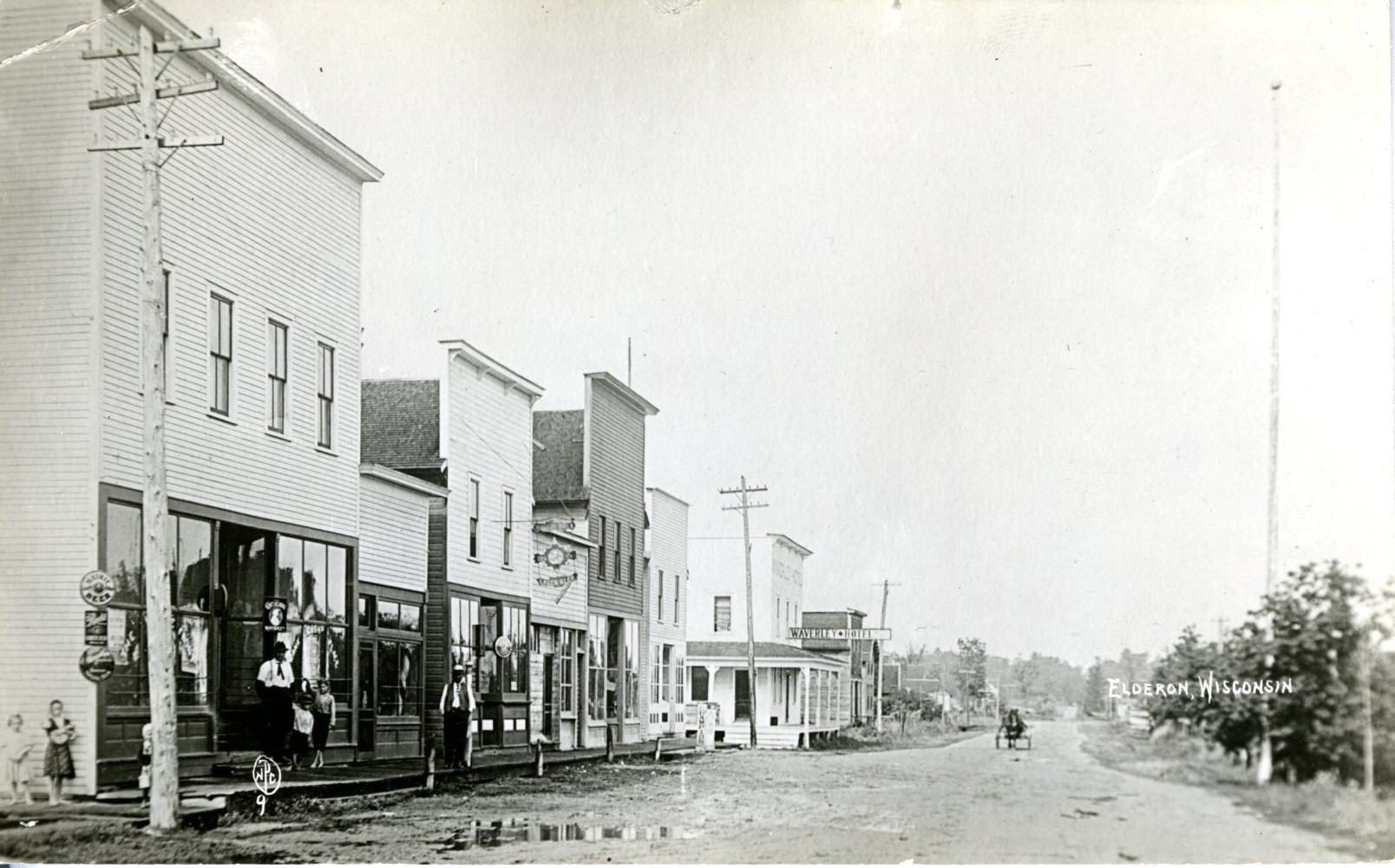Search our Places Database
Elderon, Village of
Return To List of Locations | Back to Search
For more information on this location, please contact our research library.
Author:Mary Moltzan
Location:
T. 27 N. - R. 10 E., Corner of Sec. 25, 26, 35, 36, Township of Elderon
Formallized:
August 13, 1917
Background:
When the Milwaukee, Lakeshore & Western Railroad built a branch line into the township during the 1880s, a logging boom occurred centered on what is now the Village of Elderon.
The founder was Louis S. Jacobson who settled in the area in June 1899 and built a logging camp. Within a year, several frame buildings were built. Louis opened a real estate agency, found businessmen to come in and build and early prospects looked good.
Logging built the village of Elderon, which by 1913 had electric lights and telephone service.
First Public Official:
Eric Hermanson
Post Office Established:
June 13, 1888
First Postmaster:
Calvin Day
About The Post Office:
Calvin's wife, Martha, was the mail carrier. The P.O. closed in 2002 and became a sub-station of Wittenberg.
See Settlement of Fertilia
Railroad:
Prior to 1900, Henry Sherry built about 2 miles of logging railway out of Eland, where it connected to the Milwaukee, Lake Shore and Western Railroad (became the C&NW on August 19, 1893) to the Ingersoll Lumber Mill which became the beginnings of the Village of Elderon. In 1903, the "Sherry Line" of the C&NW Railroad was replaced with better tracks and regular freight service begun. Each train also carried a passenger coach.
Churches:
1. The Norwegian Lutheran Church of America in 1900-1902 owned the land on which the Bethany Indian Mission School was located.
2. Our Savior Lutheran Church - In 1907, a "community church" was built under the control of the Elderon Christian Association.
Business:
At the turn-of-the-century, the community included a hotel, restaurant, carpenter shop, a blacksmith, a wagon maker, three general stores, a flour and feed store, and potato warehouses. Following the end of logging, the hotel in Norrie served, for a while, as a stopover for people on their way to summer homes on area lakes.
The Elderon State Bank was organized in 1913.
Industry:
Logging
Sawmills
Creamery
Stories:
Timon Thompson was the first to make a move toward building a village west of Lily Lake. He had been a book keeper and store keeper for the Ingersoll layout and, after the fire and dissolution of the company, he like many others had back pay coming. He took the old lumber camp in Section 26 in settlement of his account. He remodeled the sleeping quarters for living quarters and the cook shanty for a general store. When the Ingersoll Mill burned, no buildings stood where Elderon village now stands except the lumber camp buildings.
By the spring of 1901, according to one account, things had changed. Will Rideout of Eland had built a sawmill on the west bank of Lily Lake. Joe Taylor had built a house near the northeast corner of Section 35 and installed a post office named Fertilia. Hannah Fulton had a dress shop. Just west of the dress shop stood Louis Severson's Saloon and beyond that Louis Halverson was building the Alban Mercantile Store building. Frank Gosh was building a saloon and opera house. Beyond was Pete Peterson's Saloon, Norde and Helgeson's Hardware, and Arndt Swenson's blacksmith shop.
East across the tracks was Joe Goodale's Saloon, Fred Fuller's Elderon House Hotel and Dell Zekel's Livery Stable.


